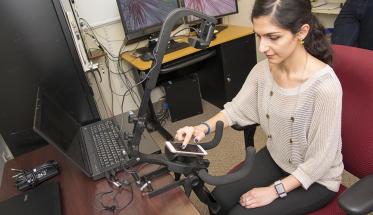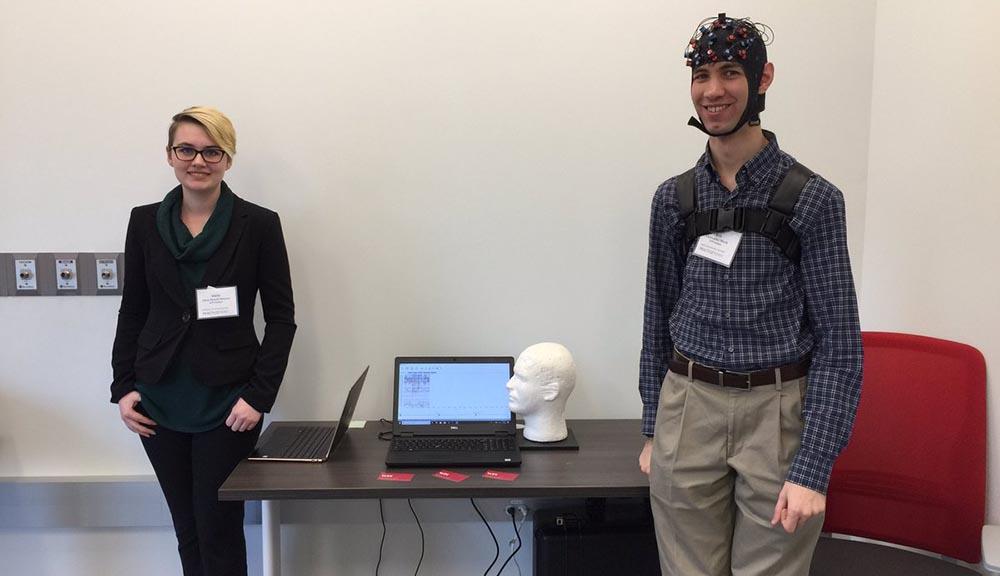Evidence-Based Predictive Pain Integrative Center (EPPIC)



Chronic pain impacts 50 million adults in the United States, with annual costs of $635 billion due to medical expenditures and loss of productivity. The adverse effects of chronic pain and the beneficial effects of treatments for pain in various populations will be more comprehensively understood using advanced genetics, neuroimaging, and sensor-based assessment of daily activities with machine learning data analytics in an integrative biopsychosocial framework.
The Evidence-Based Predictive Pain Integrative Center (EPPIC) at WPI will synergistically leverage advanced machine learning methods to identify reliable, highly accurate predictors for chronic pain and develop models that predict which patients will respond to various treatments, with an ultimate objective of enhancing the prevention, diagnosis, assessment, and treatment of chronic pain.
Contact
For scientific inquiries, please contact Dr. Benjamin Nephew at bnephew@wpi.edu
Interdisciplinary Pain Research Expertise
WPI is collaborating with the University of Massachusetts Medical School (UMMS), New England School of Acupuncture at Massachusetts College of Pharmacy and Health Sciences (MCPHS), and Harvard Medical School. This will harness the expertise of an interdisciplinary team of 17 researchers including clinicians, interventionists (acupuncture, mindfulness, psychiatry, psychologists) and technologists (omics, machine learning, sensing, neuroscience, data science and artificial intelligence experts).
EPICC will also leverage the laboratory and research capabilities of a number of facilities at WPI, as well as dedicated communities of faculty, staff, and researchers, including:
- PracticePoint: WPI’s membership-based healthcare development and testing facility—a place to advance healthcare technologies and launch better medical, cyber, and physical systems through collaboration. Available suites include those dedicated to MRI Imaging, Patient Clinical Care, Home Health, Motion Capture, and Neurotechnology, along with confidential offices and conference spaces
- Healthcare Delivery Institute (HDI): A university-wide multidisciplinary research and innovation institute, HDI addresses healthcare challenges, with a focus on applying digital technologies and IoT, process design and systems engineering, data intelligence and machine learning, cybersecurity, and enhanced user experience design.
- BioPoint: This team is dedicated to identifying key areas of collaboration with industry and government partners to advance research and development in the life sciences, bioengineering, and biomedical engineering.
- User Experience and Decision Making (UXDM) Laboratory: In collaboration with academic researchers and industry experts, the UXDM Lab investigates the entire user experience through observation, physiological measuring and eye-tracking.

MRI compatible fNIRS at PracticePoint.
Through his mobile health and sensing research, EPICC PI Emmanuel Agu is looking at the role mobile devices, smartphones, and health care apps can play in capturing important health data and biomarkers.
The UXDM Lab, professor Soussan Djamasbi and students use the latest in eye tracking technology to design solutions to real-world problems by studying user experience

Graduate Program in Neuroscience
Drawing on the university’s strengths in bioinformatics, data science, and machine learning, WPI's new transdisciplinary master's degree in Neuroscience includes a unique focus on computational neuroscience. The program will prepare neuroscientists with the broad interdisciplinary skills needed to tackle one the most important scientific challenges of our age and develop a new generation of treatments.
Kasparian Fellows
The Julia Kasparian Fund for Neuroscience Research supports a collaborative research project between neuroscientists, clinicians, and computer scientist students and faculty at WPI and McLean Hospital aimed at improving the prevention, early diagnosis, and treatment of mental illness, with a focus on dissociative disorder, depression and suicidality. The students involved in this research use clinical and neuroimaging data to develop highly accurate predictors of depression and suicidality. Learn more.
Current students include:
- Suhas Srinivasan
- Liang Zhang
- Senbao Lu
- Chen Ding
- Jianjun Luo
- Junbbong Jang
- Karthika Suresh
WPI Research
WPI faculty members and students are engaged in advanced, interdisciplinary research across a broad range of fields. From cutting-edge work in tissue engineering and regenerative medicine, to explorations of the technological and policy issues surrounding cybersecurity, to studies of issues as diverse as firefighter health and security and the fire safety challenges of green buildings, this fundamental and applied research is addressing vital societal problems and technological challenges and producing innovations and insights that are helping build a better world.